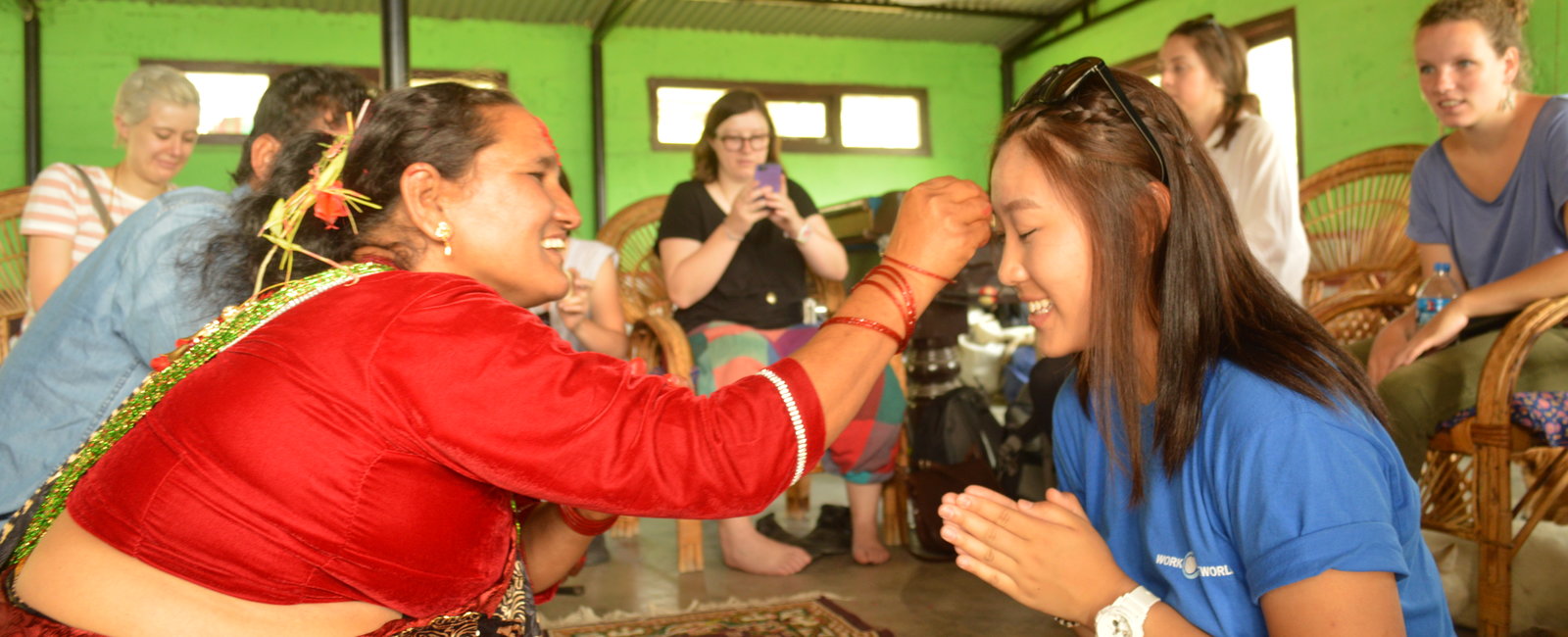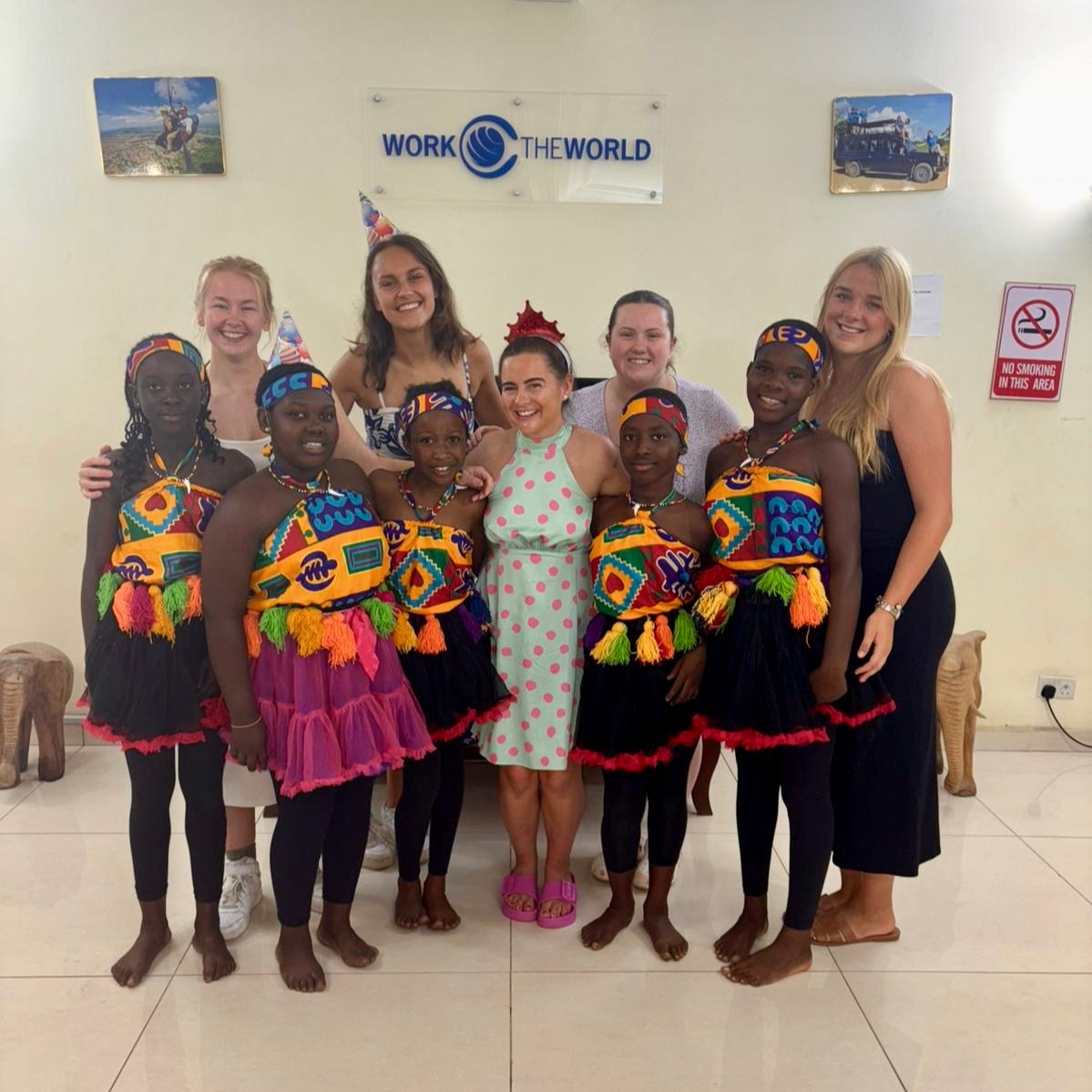Queen Margaret University 2011
When I received the phone call from the CSP to inform me that I had won a four week overseas placement with Work the World, I was ecstatic! I immediately began to research the available placement destinations.
I had always wanted to go to Africa, and after talking to a physiotherapy student who won this competition last year, as well as the Work the World team, I decided on Dar es Salaam in Tanzania.
After months of waiting, the time finally came for me to set off on the trip of a lifetime. I arrived in Dar es Salaam to be greeted by a smiling and cheerful Alpha, the programme manager. I was taken back to the student house and given a small tour. The house was amazing, and became my second home throughout the four weeks of placement. The rooms were very spacious and comfortable and there was a pool which was fantastic – especially after a busy day on placement! There was no hot running water in the house, but it did not take long to get used to cold showers in the Tanzanian heat!
I had arrived at the busiest time of year so the rooms were all full with around 30 students there, all studying a variety of health professions. I soon got to know everyone and over the course of my placement the friends I made became like my second family.
The staff at the house were brilliant and could not do enough to help. They were a wealth of knowledge and were willing to help with anything, making themselves available at any time of day or night. Rehema did a brilliant job of cooking for everyone, always making sure there was a variety of different food available including vegetarian options. BBQ Thursdays were the best, with both food and banter top notch!
I spent a thoroughly enjoyable and highly interesting four weeks of placement at the orthopaedic institute of a large, national referral hospital.
As this was quite a distance away from the student house, myself and some of the other students travelled there by the most common form of public transport: the dala dala (shared taxi). There was no limit as to how many people could fit in a dala dala, and more often than not the commuters were crammed in like sardines. Although this could at times be uncomfortable, it was all part of the experience!
A typical working day for the physiotherapy department was 8:00am – 4:00pm. There were 10 qualified physiotherapists, along with the head of department. From 8:00am – 11:00am, each physiotherapist would visit the ward they had been assigned to at the beginning of their rotation. A roster was created for me so that I was distributed amongst the staff and given the chance to experience the different areas of the hospital which included ICU, neurology, and trauma and elective orthopaedic wards, both public and private. From 11:00am onwards I would return to the outpatient department, where I would observe, or assess and treat a mixture of patients.
At first I found the hospital a big shock. There had very limited resources and the environment was massively different compared to the UK. The wards were so busy that patients slept on mattresses on the floor, or shared two to a bed. There were no curtains for patients to gain any privacy and there were mosquitos everywhere. Infection control did not seem to exist, with very little soap available and nothing to dry your hands with. I always made a point of sharing my hand gel! Despite these conditions, the attitude of the patients was very humbling, and the positive ethos and spirit of both staff and patients alike extremely heart-warming. The first few days I felt completely out of my comfort zone, but once I became accustomed to the new setting and different way of working, I soon became more relaxed.
The majority of patients treated throughout the placement were involved in road traffic accidents with multiple fractures and severe brain injuries.
In the outpatient setting, back pain was also very common. There were, however, some more unusual cases that I would not be likely to observe in the UK, such as Pott’s disease (tuberculosis of the spine) and malaria.
During the placement, it was arranged for me to spend two days in the paediatric department of the main hospital, where I gained the opportunity to work with children of all ages with cerebral palsy. As well as this, I also spent a day observing two surgeries being performed; the first a total hip replacement, and the second was the removal of a calcified iliopsoas muscle. Both of these surgeries were brilliant to watch, with the basic surgical set up varying only slightly from that in the UK.
I felt the greatest challenge that I faced while on this placement was communication. A number of the more highly educated patients were fluent in English but most only spoke Kiswahili, and so I found it very hard to interact with them at first. However, each week at the house we were given Swahili lessons, where we were taught greetings, numbers and body parts etc. This was such a great help and allowed me to gain the trust of both patients and staff and build up a good rapport with them, as well as develop my verbal and non-verbal communication skills. The physiotherapy team’s English was excellent, and the staff were always on hand to help translate if I struggled to understand anything.
When not in the hospital I had plenty of time for sightseeing and soaking up the culture, as well as experiencing some of the local cuisine. Myself and a group of the other students spent a weekend in Zanzibar, where we learned the history of the slave markets in Stone Town. We also visited the peaceful and beautiful village of Jambiani, which was fantastic! We took a trip to Bongoyo, one of the local islands, and also went on a 3day safari where we camped for two nights. On safari we saw giraffes, elephants, hippos, lionesses and lots more all in their natural habitat. It was amazing! The safari cost around £200, and included all meals and drinks. Definitely worth it!
We also visited a local orphanage and took some supplies of soap, toothpaste, pencils, paper, cooking ingredients and sweets. The children were really friendly and enthusiastic, and most of them spoke fluent English!
A placement overseas really helped to boost my confidence. It has allowed me to enhance my clinical reasoning and communication skills, develop new skills as a student physiotherapist and also gain a cultural awareness. The whole experience was eye-opening, and one which I will never forget.








